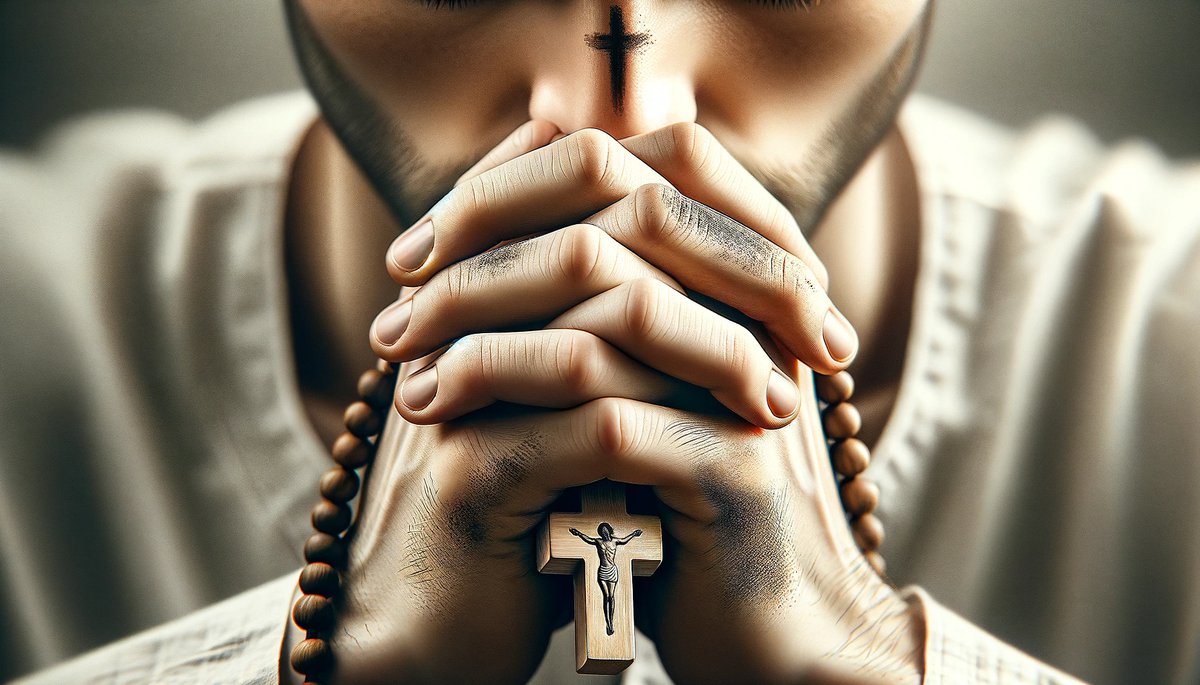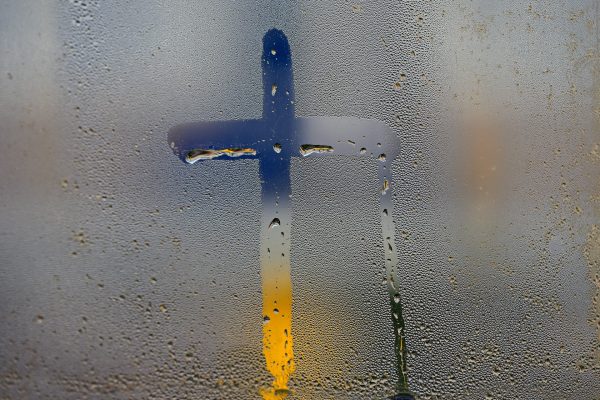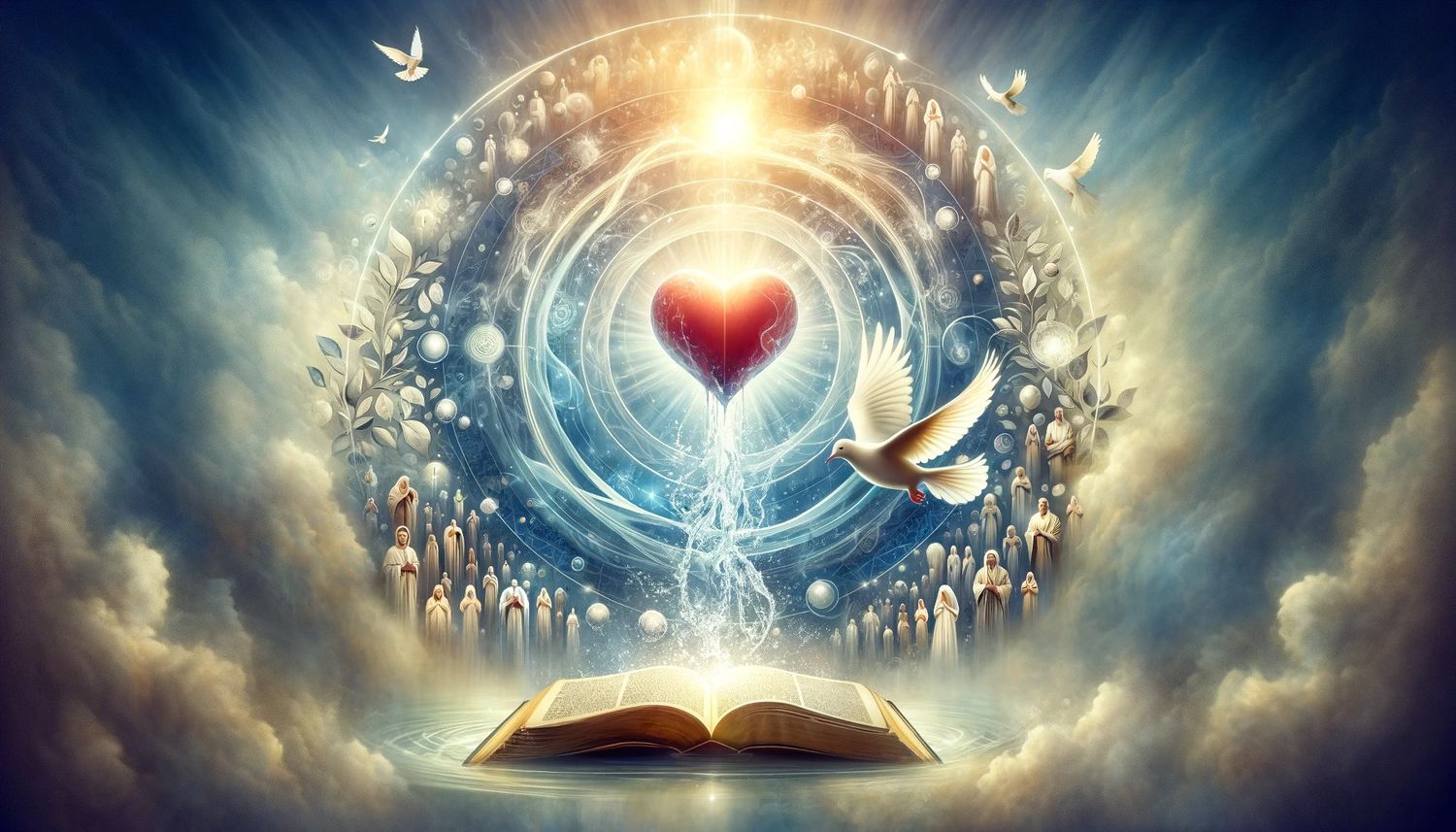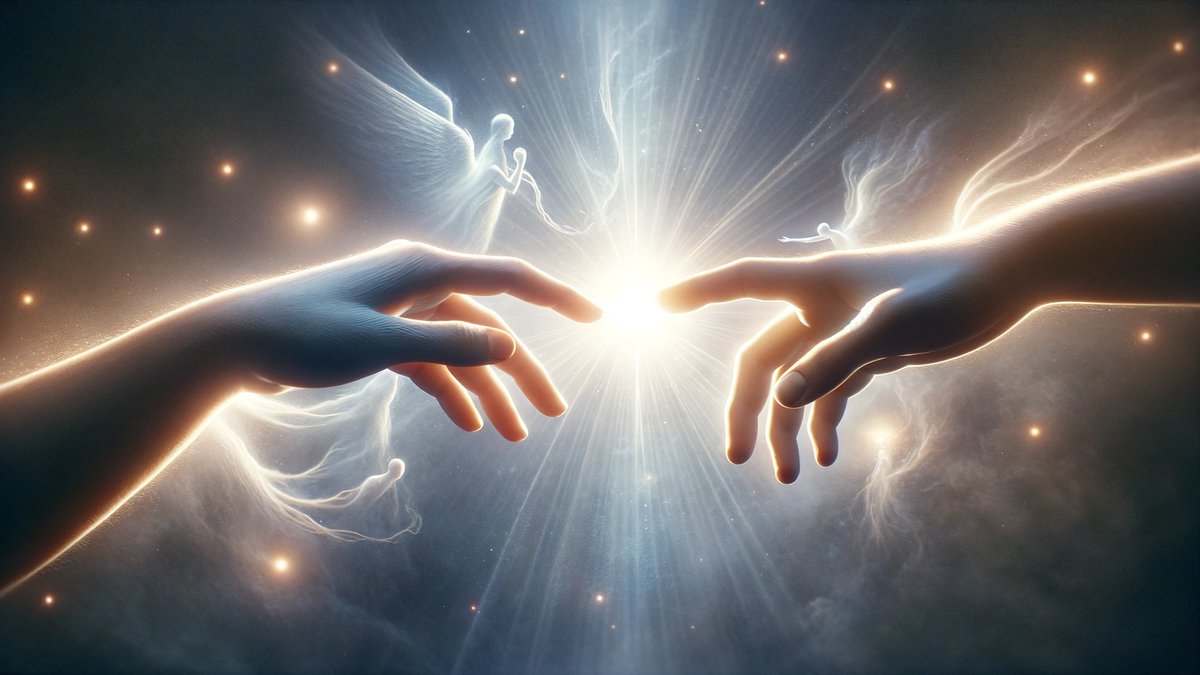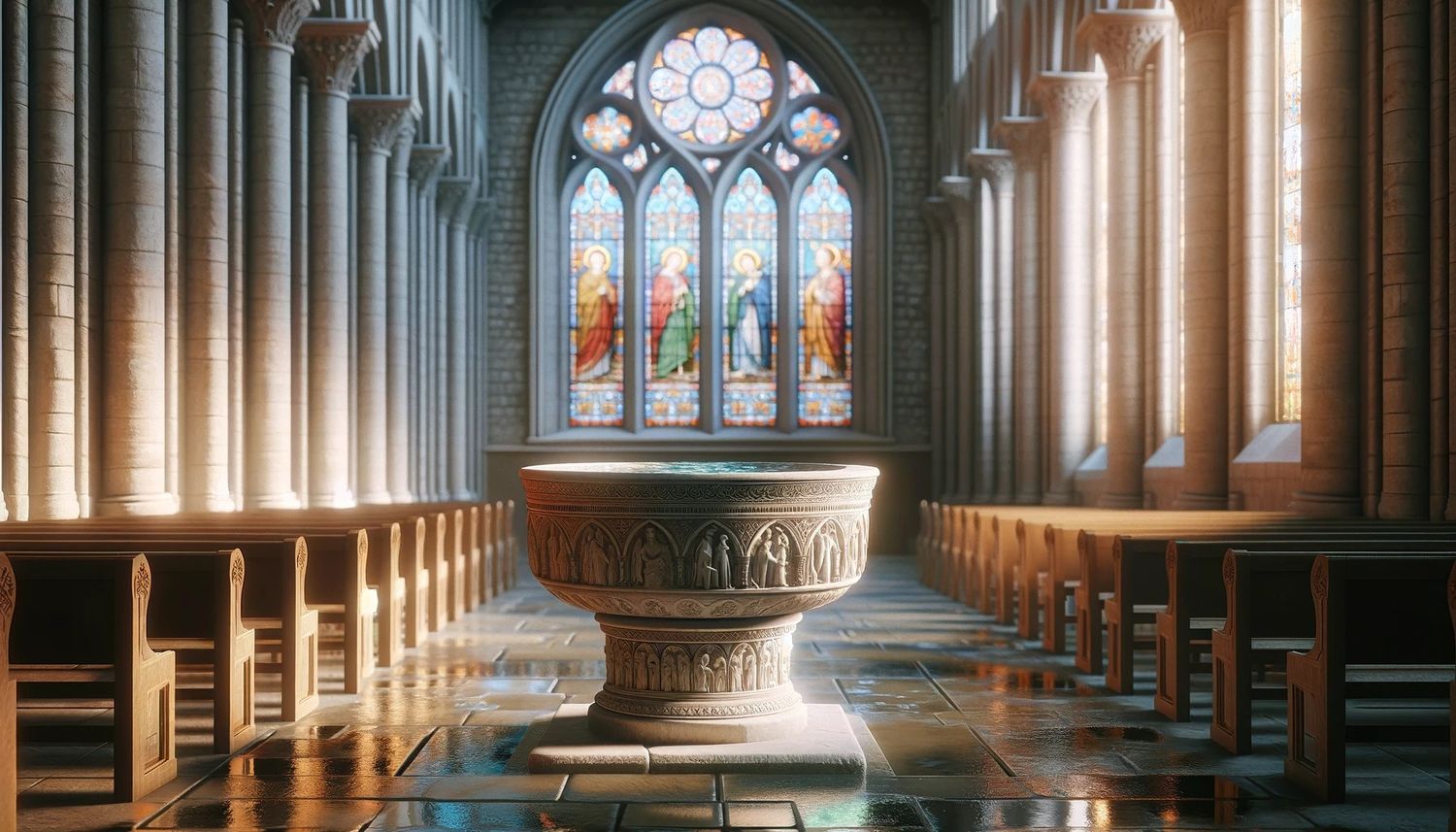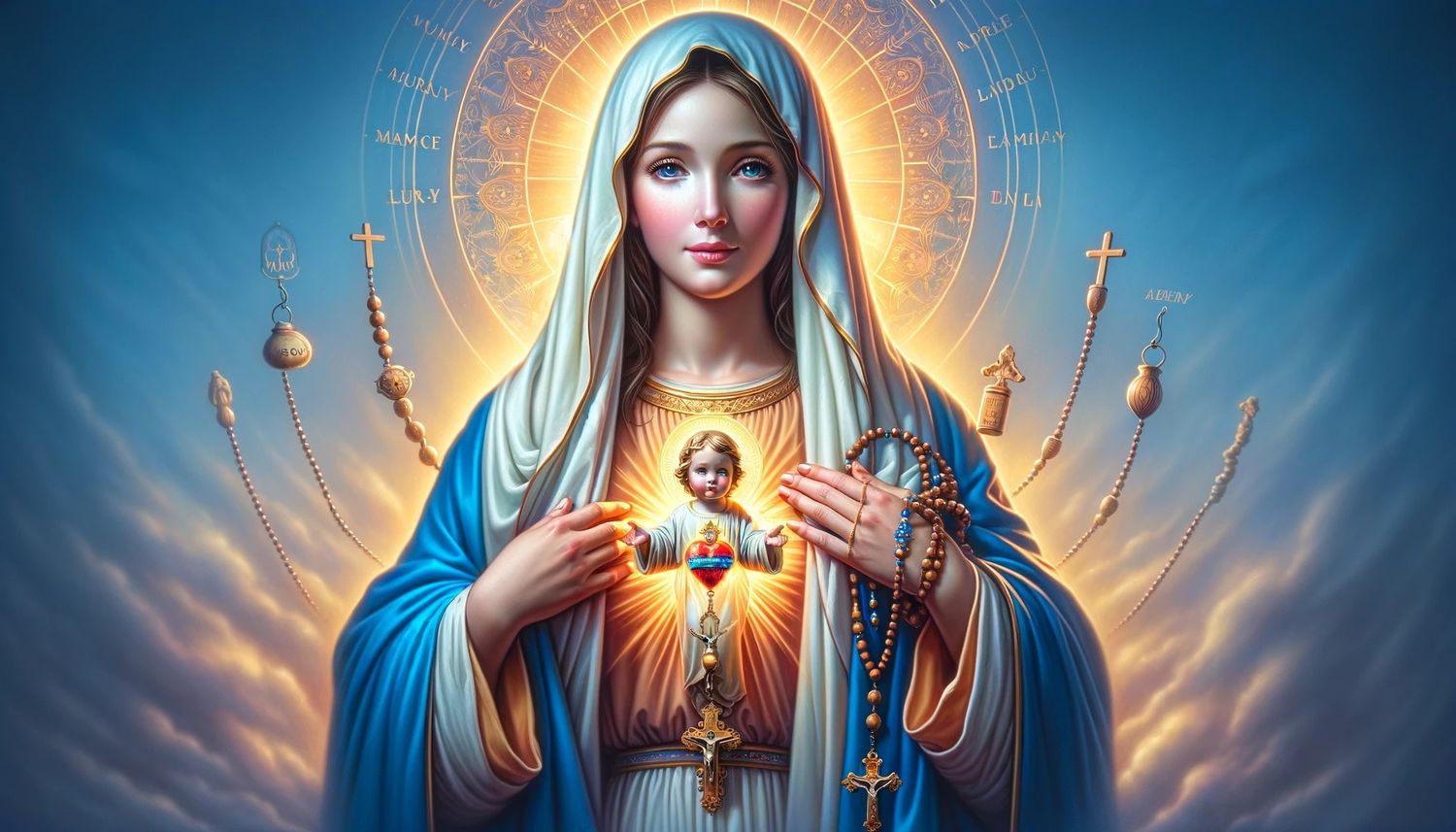Home>Theology and Spirituality>What Does Mass Mean In Catholicism
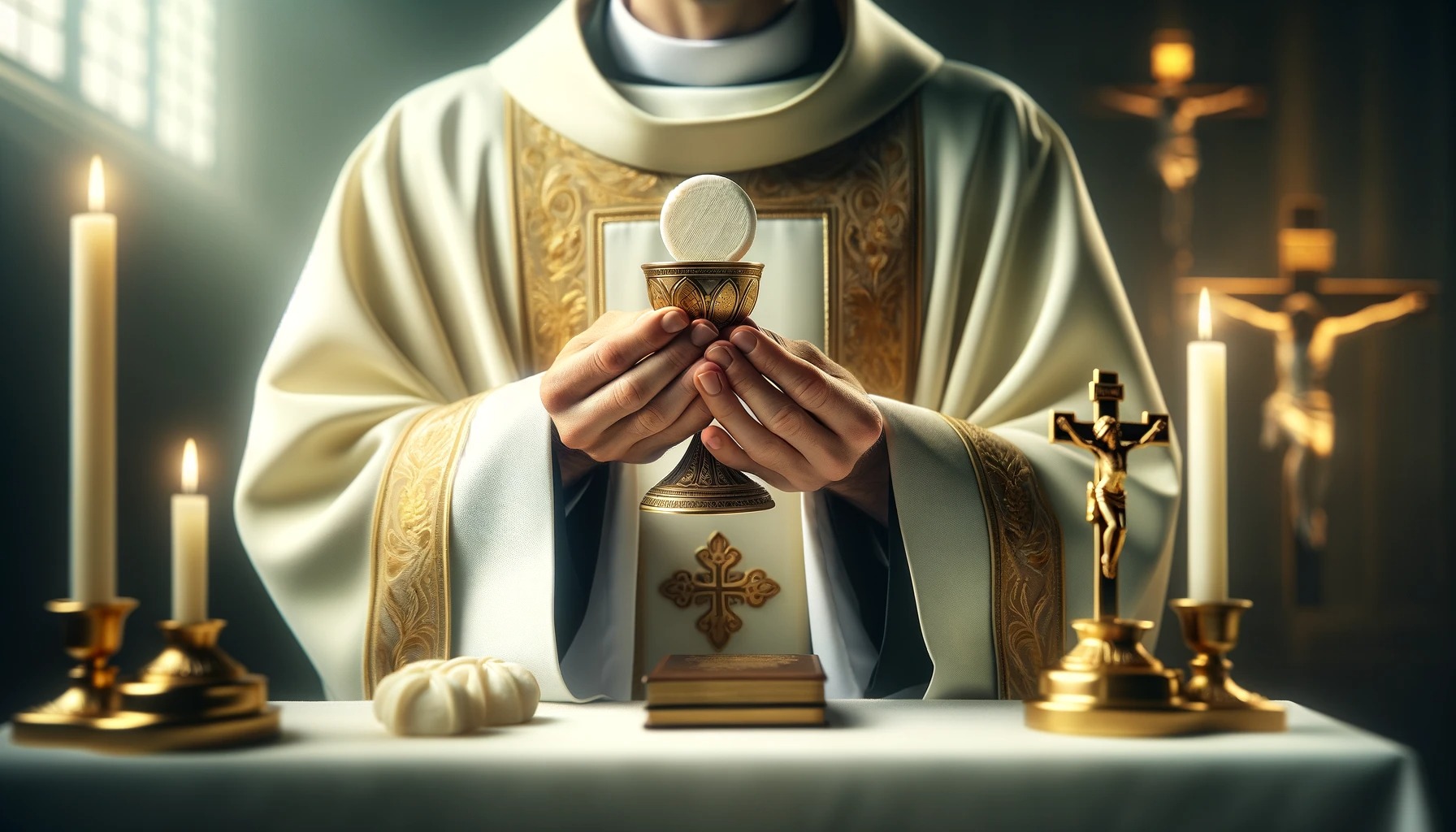

Theology and Spirituality
What Does Mass Mean In Catholicism
Published: February 15, 2024
Jason DeRose, Managing Editor at Christian.net, uses his expertise in religion and journalism to deepen understanding of faith's societal impacts. His editorial leadership, coupled with a strong academic background, enriches the platform’s diverse content, earning him recognition in both journalism and religious circles.
Explore the significance of mass in Catholic theology and spirituality. Learn about its rituals, symbolism, and importance in the faith.
(Many of the links in this article redirect to a specific reviewed product. Your purchase of these products through affiliate links helps to generate commission for Christian.net, at no extra cost. Learn more)
Table of Contents
Introduction
The Mass holds a central place in the practice of Catholicism, serving as a cornerstone of the faith and a source of spiritual nourishment for millions of believers worldwide. Understanding the significance of the Mass requires delving into the theological, ritualistic, and communal aspects that define this sacred tradition. From the Eucharist to the role of the priest, the Mass encompasses a rich tapestry of beliefs and practices that have endured for centuries.
In this comprehensive exploration, we will embark on a journey to unravel the profound meaning of the Mass in Catholicism. We will delve into the theological underpinnings, the rituals and practices that shape the Mass, and the pivotal role of the Eucharist within this sacred gathering. Additionally, we will shed light on the role of the priest in facilitating the Mass and fostering a sense of spiritual communion among the faithful.
As we navigate through the intricacies of the Mass, we will gain a deeper appreciation for its significance in the lives of Catholics and its enduring impact on the spiritual landscape of the Church. Join me as we embark on this enlightening odyssey to uncover the profound meaning and relevance of the Mass in the Catholic faith.
Read more: What Is The Meaning Of Catholicism
Theological Understanding of Mass
The theological understanding of the Mass in Catholicism is rooted in the belief that it is a reenactment of the sacrifice of Jesus Christ on the cross. At its core, the Mass is a sacred liturgical celebration that commemorates and makes present the salvific sacrifice of Christ, offering believers the opportunity to partake in the divine mystery of redemption. This theological concept is encapsulated in the term "anamnesis," which signifies the active remembrance and participation in the saving work of Christ.
Central to the theological understanding of the Mass is the concept of transubstantiation, which denotes the transformation of the bread and wine into the body and blood of Christ during the Eucharistic prayer. This profound belief underscores the real presence of Christ in the Eucharist, signifying a spiritual union between the faithful and the divine.
Furthermore, the Mass is viewed as a communal act of worship, uniting the faithful in a sacred bond of prayer and supplication. It serves as a testament to the communal nature of the Church, emphasizing the interconnectedness of believers as they gather to partake in the Eucharistic feast.
The theological significance of the Mass extends beyond its commemorative nature, encompassing the themes of redemption, reconciliation, and spiritual nourishment. Through active participation in the Mass, Catholics are invited to enter into a profound encounter with the living Christ, experiencing His grace and mercy in a tangible and transformative manner.
In essence, the theological understanding of the Mass underscores its pivotal role as a sacred reenactment of Christ's sacrifice, a celebration of the real presence of Christ in the Eucharist, and a communal expression of faith and worship. This theological framework forms the bedrock of the Mass, infusing it with profound spiritual significance and underscoring its enduring relevance in the lives of believers.
The Mass, therefore, stands as a testament to the rich theological tapestry of Catholicism, inviting believers to partake in the divine mystery of redemption and to embrace the transformative power of the Eucharistic celebration.
Importance of Mass in Catholicism
The Mass holds profound significance within the framework of Catholicism, serving as the cornerstone of the faith and a sacred conduit through which believers commune with the divine. Its importance transcends mere ritualistic observance, encompassing spiritual, communal, and theological dimensions that resonate deeply within the hearts of the faithful.
At its core, the Mass embodies the essence of Catholic worship, offering a sacred space for believers to gather, pray, and partake in the Eucharistic celebration. It serves as a focal point of spiritual nourishment, providing a platform for the faithful to encounter the living Christ in the Eucharist and to be transformed by His grace and presence. The Mass, therefore, stands as a testament to the rich theological tapestry of Catholicism, inviting believers to partake in the divine mystery of redemption and to embrace the transformative power of the Eucharistic celebration.
Furthermore, the Mass fosters a sense of communal unity and solidarity among the faithful, underscoring the interconnectedness of the Church as a vibrant and diverse community of believers. It serves as a unifying force that transcends individual differences, bringing together people from all walks of life to partake in a collective expression of faith and worship. In this communal gathering, the faithful are bound together by a shared sense of devotion and reverence, creating a sacred space where the presence of God is palpably felt.
The Mass also serves as a source of spiritual sustenance, offering solace, guidance, and renewal to believers as they navigate the complexities of life. Through the reception of the Eucharist and the proclamation of the Word, the Mass provides a spiritual anchor, grounding believers in their faith and equipping them to navigate the challenges of the world with steadfast conviction and hope.
Moreover, the Mass embodies the timeless traditions and rich heritage of the Catholic Church, serving as a link to the faith's historical roots and enduring legacy. It encapsulates the continuity of worship and devotion that has been passed down through generations, connecting contemporary believers to the timeless rituals and practices that have defined Catholicism for centuries.
In essence, the Mass stands as a sacred testament to the enduring relevance of Catholicism, embodying the spiritual, communal, and theological essence of the faith. Its importance is woven into the fabric of Catholic identity, serving as a beacon of divine grace, communal unity, and spiritual sustenance for believers across the globe.
Rituals and Practices of Mass
The rituals and practices of the Mass form a tapestry of sacred traditions that imbue the liturgical celebration with profound meaning and spiritual significance. From the reverent gestures to the solemn prayers, each element of the Mass is carefully choreographed to create a sacred space where believers can encounter the divine presence in a tangible and transformative manner.
The Mass unfolds in a series of ritualistic movements and symbolic actions, each laden with theological and spiritual significance. The procession, marking the entrance of the celebrants and the sacred vessels, sets the tone for the solemnity and reverence that permeate the entire celebration. The lighting of candles, the incensation of the altar, and the veneration of the Gospel further enrich the sensory experience, engaging believers on a multi-dimensional level.
Central to the rituals of the Mass is the Liturgy of the Eucharist, which encompasses the consecration of the bread and wine, culminating in the reception of the Eucharist by the faithful. The Eucharistic prayer, with its profound invocation of the Holy Spirit and the words of institution, serves as the focal point of the entire celebration, encapsulating the essence of the Mass as a reenactment of Christ's sacrifice and a celebration of His real presence in the Eucharist.
The rituals of the Mass also extend to the communal participation of the faithful, who engage in responsive prayers, hymns, and gestures of reverence. The exchange of peace, where believers offer one another a sign of Christ's peace and reconciliation, underscores the communal nature of the Mass, fostering a sense of unity and solidarity among the worshippers.
Furthermore, the Mass incorporates a rich tapestry of symbolic gestures and postures, from the bowing of the head during the mention of the Holy Name to the profound reverence shown during the elevation of the consecrated elements. These rituals serve to engage the senses and evoke a deep spiritual awareness, inviting believers to enter into a sacred space where the divine and the human converge.
In essence, the rituals and practices of the Mass form a mosaic of sacred traditions that enrich the liturgical celebration, infusing it with profound meaning and spiritual depth. Through these rituals, believers are invited to partake in a transformative encounter with the divine, embracing the rich tapestry of Catholic tradition and spirituality that defines the Mass as a sacred and transcendent experience.
The Eucharist in Mass
The Eucharist, also known as Holy Communion, stands as the focal point of the Mass in Catholicism, encapsulating the profound mystery of Christ's real presence in the consecrated bread and wine. This sacred sacrament holds deep theological significance, serving as a tangible manifestation of the divine grace and a transformative encounter with the living Christ.
At the heart of the Eucharistic celebration lies the belief in transubstantiation, the profound transformation of the bread and wine into the body and blood of Christ during the Eucharistic prayer. This theological concept underscores the real presence of Christ in the Eucharist, inviting believers to partake in a spiritual union with the divine and to be nourished by the life-giving sustenance of the Lord.
The Eucharist serves as a profound symbol of Christ's sacrificial love, encapsulating the redemptive essence of the Mass as a reenactment of His saving sacrifice on the cross. Through the reception of the Eucharist, believers are invited to enter into a profound communion with Christ, embracing His unconditional love and experiencing the transformative power of His presence in their lives.
Furthermore, the Eucharist fosters a sense of communal unity and solidarity among the faithful, underscoring the interconnectedness of the Church as a vibrant and diverse community of believers. As the faithful partake in the Eucharistic feast, they are bound together by a shared sense of devotion and reverence, creating a sacred space where the presence of God is palpably felt.
The reception of the Eucharist also serves as a source of spiritual nourishment and renewal, offering believers the opportunity to be strengthened and sustained by the grace of Christ. Through this sacred encounter, believers are invited to partake in the divine life of Christ, finding sustenance for their spiritual journey and the grace to navigate the complexities of life with steadfast faith and hope.
In essence, the Eucharist in the Mass stands as a testament to the profound mystery of Christ's real presence, inviting believers to partake in a transformative encounter with the living Christ and to be nourished by the life-giving sustenance of the Lord. It embodies the spiritual essence of the Mass, serving as a sacred conduit through which believers commune with the divine and are transformed by the grace and love of Christ.
The Role of the Priest in Mass
The role of the priest in the Mass is pivotal, serving as the ordained mediator who facilitates the sacred liturgical celebration and presides over the Eucharistic sacrifice on behalf of the faithful. As the ordained minister entrusted with the sacred duty of celebrating the Mass, the priest embodies a profound spiritual presence, guiding the congregation through the ritualistic and sacramental aspects of the Eucharistic celebration.
At the onset of the Mass, the priest assumes a central role in leading the congregation in prayer and supplication, setting the tone for the solemn and reverent atmosphere that permeates the liturgical gathering. Through the introductory rites, the priest invokes the presence of God and invites the faithful to enter into a sacred space of worship and contemplation.
During the Liturgy of the Word, the priest assumes the responsibility of proclaiming the sacred scriptures and offering insightful reflections that illuminate the timeless teachings of the Church. Through the homily, the priest provides spiritual guidance and pastoral care, expounding on the Word of God and its relevance to the lives of the faithful, thereby nurturing their faith and understanding.
Central to the role of the priest in the Mass is the solemn duty of consecrating the bread and wine during the Eucharistic prayer, effecting the profound transformation of these elements into the body and blood of Christ through the power of the Holy Spirit. This sacred act of transubstantiation underscores the priest's role as a conduit of divine grace, facilitating the real presence of Christ in the Eucharist and inviting the faithful to partake in the salvific sacrifice of the Lord.
Furthermore, the priest orchestrates the communal aspects of the Mass, leading the congregation in responsive prayers, invocations, and hymns that foster a sense of unity and participation among the faithful. The priest also administers the reception of the Eucharist, offering the sacred body and blood of Christ to the faithful and guiding them in the reverent reception of this transformative sacrament.
In essence, the role of the priest in the Mass encompasses a sacred ministry of leadership, guidance, and sacramental mediation, embodying the spiritual presence of Christ and shepherding the faithful through the sacred rites and rituals of the Eucharistic celebration. Through the priest's ordained ministry, the Mass becomes a profound encounter with the divine, inviting believers to partake in the redemptive mystery of Christ's sacrifice and to be nourished by the real presence of the Lord in the Eucharist.
Conclusion
In conclusion, the Mass in Catholicism stands as a sacred testament to the enduring richness and depth of the faith, embodying the spiritual, communal, and theological essence of Catholic worship. From its theological underpinnings to its ritualistic expressions, the Mass serves as a profound expression of the Catholic identity, inviting believers to partake in the divine mystery of redemption and to embrace the transformative power of the Eucharistic celebration.
The theological understanding of the Mass as a reenactment of Christ's sacrifice and a celebration of His real presence in the Eucharist underscores its profound significance within the framework of Catholic belief. This theological foundation forms the bedrock of the Mass, infusing it with profound spiritual significance and underscoring its enduring relevance in the lives of believers.
Moreover, the Mass fosters a sense of communal unity and solidarity among the faithful, underscoring the interconnectedness of the Church as a vibrant and diverse community of believers. It serves as a unifying force that transcends individual differences, bringing together people from all walks of life to partake in a collective expression of faith and worship.
The rituals and practices of the Mass form a mosaic of sacred traditions that enrich the liturgical celebration, infusing it with profound meaning and spiritual depth. Through these rituals, believers are invited to partake in a transformative encounter with the divine, embracing the rich tapestry of Catholic tradition and spirituality that defines the Mass as a sacred and transcendent experience.
The Eucharist, as the focal point of the Mass, encapsulates the profound mystery of Christ's real presence, inviting believers to partake in a transformative encounter with the living Christ and to be nourished by the life-giving sustenance of the Lord. It embodies the spiritual essence of the Mass, serving as a sacred conduit through which believers commune with the divine and are transformed by the grace and love of Christ.
In essence, the Mass stands as a sacred testament to the enduring relevance of Catholicism, embodying the spiritual, communal, and theological essence of the faith. Its importance is woven into the fabric of Catholic identity, serving as a beacon of divine grace, communal unity, and spiritual sustenance for believers across the globe.
